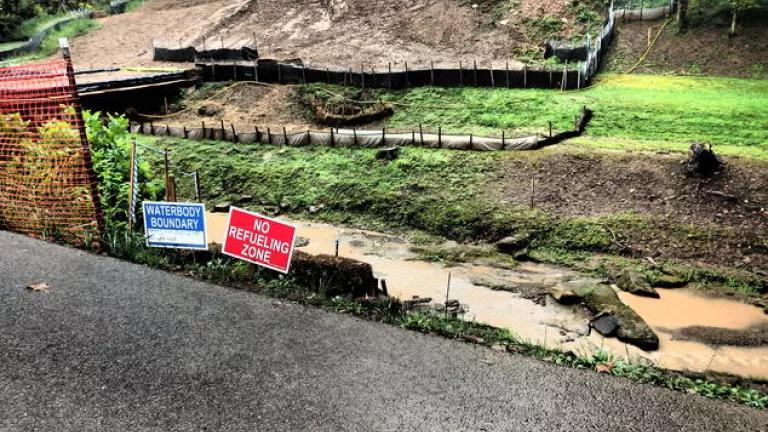Virginia and North Carolina Show Domestic Biopower the Exits
Over the past 6 months, two southeastern states, Virginia and North Carolina, have taken landmark actions to ensure that dirty, destructive forest biomass for electricity has no place in the clean energy future of the region. In March, the Virginia legislature passed its landmark Clean Economy Act, which was signed into law by Governor Northam. Prior to that, North Carolina issued its final Clean Energy Plan under Governor Cooper’s Executive Order 80. In both cases, bold state action rejected biomass for electricity as a clean energy source and articulated compelling rationales to limit and restrict any future growth of the industry.
Virginia
On March 11, the Virginia General Assembly made history by passing the Virginia Clean Economy Act, which takes huge strides toward addressing climate change. This far-sighted climate law will require Virginia’s power producers to reduce their emissions to zero by 2050 and to transition to genuine clean energy. Central to this Act are biomass restrictions that eliminate Virginia’s reliance on bioenergy and preclude any possible role for biomass in the Commonwealth’s clean energy future.
The Act includes three biomass mandates that phase out most of the existing biomass electric capacity in the Commonwealth and halt any future expansion of biomass in its power sector:
- Clean Energy Definition: The underlying statutory definition of “clean energy” excludes biomass from the list of sources, such as solar and wind;
- Plant Retirements and Carbon Regulations: All existing stand-alone biomass plants must be permanently retired by 2028. Further, any co-firing of biomass in coal plants must be covered in a forthcoming carbon regulation. These provisions mean that about 88 percent of Virginia’s biomass capacity will be offline by 2028, and the remaining 12 percent will be regulated under a new carbon rule.
- Exclusion from Renewable Portfolio Standard: Most biomass is prohibited from eligibility under the Renewable Portfolio Standard, and the remainder (those certain facilities that provide no more than 10 percent of their electrical energy to the grid) will be capped at current levels with no ability to expand.
In effect, the Virginia legislature has committed to a clean energy future without biomass for electricity, despite the intense pressure of utilities and the forest products industry. For this reason, the Act will be good for Virginia ratepayers, forests, communities, and the climate.
North Carolina
In November 2019, North Carolina issued its final Clean Energy Plan under Governor Cooper’s Executive Order 80 establishing how the state will achieve a target of a 40% reduction in statewide greenhouse gas emissions. The final Plan has rejected the combustion of biomass for electricity as a future clean energy source and explicitly recognized the harmful climate impacts of the wood pellet industry in North Carolina.
Foremost, the plan does not include biomass in its definition of clean energy. The Plan also includes substantial findings that justify excluding biomass for electricity in the state’s vision for clean energy.
The wood pellet industry “does not advance NC’s clean energy economy”
“Wood pellets harvested from NC increase the state’s carbon output during logging, processing and transportation”
“Biomass combustion releases carbon into the atmosphere at a faster pace than if the forests were left intact to absorb and sequester carbon dioxide emitted from anthropogenic sources.”
“NC should not support [biomass] activities that would increase emissions from its electricity generation sector.”
Use of NC’s forest resources to meet emissions reduction targets “should be challenged at the national and international level”
These back-to-back actions by neighboring states have created a long-overdue policy rejection of forest biomass for electricity driven by a groundswell of objection from concerned citizens. The actions send a clear signal that leaders in the region have no appetite for the unfounded subsidies and warped policies in the EU and UK. These subsidies drive the ecological destruction of the region’s forests, threaten their most vulnerable communities with disproportionate impacts, and accelerate climate change.
The signal is clear: there is no room to repeat the errors of policymakers in the EU and the UK who have erroneously promoted the myth of biomass “carbon neutrality.” Federal policymakers in Washington DC who are contemplating Trump Administration carbon neutrality policies for biomass should take heed; they will soon be rowing against the current.

